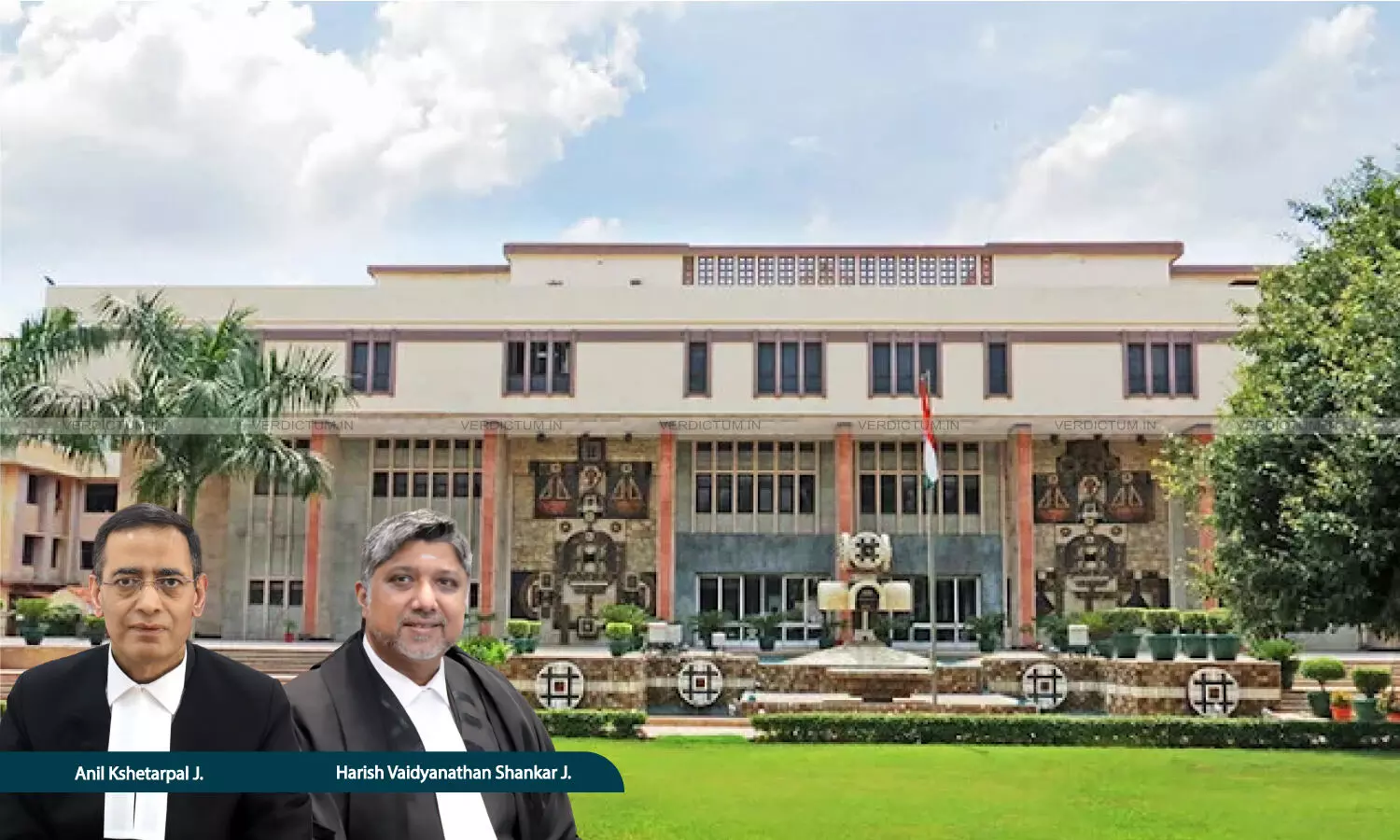
Justice Anil Kshetarpal and Justice Harish Vaidyanathan Shankar, Delhi High Court
Right Of Residence Under Domestic Violence Act No Longer Survives On Divorce Unless Contrary Statutory Right Is Shown To Persist: Delhi High Court
 |
|The appeal before the Delhi High Court was filed assailing the correctness of a Family Court Order whereby the suit for possession filed by the appellant’s mother-in-law was decreed in her favour.
While dismissing an appeal filed by a woman under Section 19 of the Family Courts Act, 1984, the Delhi High Court has held that the woman’s right of residence under the Protection of Women from Domestic Violence Act, 2005, no longer survives on divorce unless a contrary statutory right is shown to persist.
The appeal before the High Court was filed assailing the correctness of a Family Court Order whereby the suit for possession, damages/ use and occupation charges, permanent as well as mandatory injunction filed by the appellant’s mother-in-law, was decreed in her favour.
The Division Bench of Justice Anil Kshetarpal and Justice Harish Vaidyanathan Shankar held, “Section 2(f) of the PWDV Act defines a domestic relationship as a relationship between two persons who live, or have at any point of time lived, together in a shared household when they are related by consanguinity, marriage, or a relationship in the nature of marriage. Once the marriage stands dissolved by a valid decree of divorce, the domestic relationship comes to an end. Consequently, the substratum upon which the right of residence is founded no longer survives, unless a contrary statutory right is shown to persist.”
Advocate J. C. Mahindro represented the Appellant while Advocate Sanjay Kumar Chhikana represented the Respondent.
Factual Background
The Appellant is the daughter-in-law of the Respondent (Plaintiff before Family Court). The Respondent’s son married the Appellant in the year 1999, and a male child was born. The Respondent passed away, leaving behind two legal heirs, i.e., one daughter and one son, both of whom were brought on record as her legal representatives. The Respondent had executed a Will in favour of her daughter who represents her estate in the present proceedings. It was the appellant’s case that she had been residing at the suit property since her marriage and continued to reside there as it constituted her matrimonial home. She claimed that the suit property was initially purchased in the name of her husband, and was subsequently transferred to his mother, the Respondent, not voluntarily, but under duress, given the strained relationship between the Appellant and the Respondent.
The Appellant alleged that since the inception of her marriage, she had been subjected to acts of cruelty, both mental and physical, at the hands of her husband, as well as by her in-laws. The Appellant further claimed that she had made financial contributions, either personally or through her family, towards the purchase and construction of the suit property. Divorce proceedings were also pending. The Family Court decreed the suit in favour of the Respondents. Aggrieved thereby, the appellant approached the High Court.
Reasoning
Considering that the Appellant had claimed the right to shared accommodation in her matrimonial home, especially in light of the protection accorded under the Protection of Women from Domestic Violence Act, 2005 (PWDV Act), the Bench referred to section 17 of the Act. The Bench explained that the said section confers upon every woman in a domestic relationship the right to reside in the shared household, irrespective of whether she has any right, title or beneficial interest in the same. However, this right is not indefeasible. It does not create a proprietary interest in the property and is subject to lawful eviction in accordance with due process.
It was noticed that the Appellant's marriage to the respondent’s son was dissolved by a decree of divorce. Although the said decree was challenged by the Appellant and the matter was remanded for fresh adjudication, as of date, there was no subsisting matrimonial bond or domestic relationship between the parties. “In the absence of such a relationship, the foundational requirement for invoking Section 17 of the PWDV Act is lacking. Accordingly, the Appellant’s assertion of a continuing right of residence under the Act is materially weakened, subject of course to the outcome of her pending appeal”, it said.
“Having held that the Appellant’s claim of residence as a member of a shared household under the PWDV Act does not survive the dissolution of marriage, the focus now shifts to the question of ownership and possession of the suit property”, it added.
Coming to the aspect of will, the Bench noted that once the Respondents had produced valid registered instruments demonstrating title, the burden lay upon the Appellant to prove her plea of contribution or duress, which she had failed to discharge. The Bench took note of the fact that Notices revoking the Appellant’s permissive occupation were issued as far back as 2013, followed by the institution of the possession suit. The Appellant was afforded ample opportunity to defend her claim, and the Family Court decreed possession only after a comprehensive appraisal of the pleadings and evidence.
Thus, dismissing the appeal, the Bench found that the Family Court rightly decreed the suit in favour of the Respondents, affirming their title and possession over the suit property, and in rejecting the Appellant’s claim to continued residence or ownership rights.
Cause Title: A v. B (Neutral Citation: 2025:DHC:7098-DB)
Appearance
Appellant: Advocate J. C. Mahindro
Respondent: Advocates Sanjay Kumar Chhikana, Ujjwal Arora